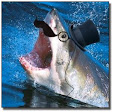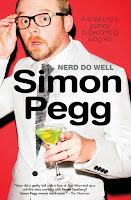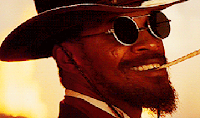It's been a while, but rest assured, I haven't forgotten you all here at The Bookish Kind. I've been in kind of a reading lull that I'm just now getting out of, and I have the craft of writing to blame. Between my gigs at
What Culture and
Cocktails and Movies, I've been swamped with wordsmithing. On top of all of this, I lost my job back in March, and I've been on the job hunt ever since. I'll admit, this hit me harder than I expected, and I have suffered a minor case of ennui and just general meh-ness. Which brings us here: my first book review for this blog in a good, long while. I've been slacking with the Cannonball Read V, but it's ok because I signed on for a half Cannonball. There's still hope to meet the quota, but overall it's about getting back to normalcy more than anything. And now, without further delay, the initial entry in my Cannonball Read V: CBR Unchained!
My first exposure to Jess Taylor was in the local Stop and Shop, picking up groceries with the girlfriend and ambling about the aisles. As always, my gaze turned towards the Book section, and I glanced at all of the titles on display. Some I'd seen before, some I'd never read in a million years, and some were just horrifically named Romance novels that would never even cross my mind under normal circumstances. And then there was
Beautiful Ruins. A book about Italy in the 1950's, it had a beautiful cover with slightly flowery writing that promised fun that would have been theatrical fare in the era that the book was portraying. The premise sounded fun, but I didn't pick the book up at the time, simply because I'm backlogged as it is with books I have at home. But I made note of the author's name, and conducted a search at the local library.

It was this that lead to me checking out his most recent short story collection,
We Live In Water. This collection is the complete antithesis of what I believe
Beautiful Ruins to be. It is stark, serious, and at points downright depressing. It's a portrait of the American Northwest set in various eras, using various locations from Spokane to Vegas, and portraying various relationships in states of disrepair. The recurring themes of this collection are what people will do under duress and economic hardship. In
Anything Helps, homeless "Bit" begs for money in order to buy his son a copy of
Harry Potter and the Deathly Hallows. In the titular story, a son goes on a quest to find his long disappeared father, which is played in parallel to the last night his father was actively in his life. Most interestingly, in the final story,
A Statistical Abstract of My Hometown: Spokane, Washington, Walter paints a portrait of the town he grew up in and has been unable to leave.
All of this collection's stories have somewhat depressing components, but this doesn't dull their quality at all. If anything, it seems like a good place for a writer like Walter to exorcise some demons and worries he has in his own living area. Reading the final story calls back certain elements of some of the stories, and you can tell where his inspiration came from for some of the characters and scenarios depicted. It is this type of writing, the semi influenced by personal experience, yet not overly indulgent or complimentary, that makes for some of the best fiction. As with most Short Story compilations, this is a quick read and easy to pick up and put down at random intervals, without missing a beat. I like books like these, because they give me a break from long form narratives when I feel like I need a break from more epic fare. What's more, I'm completely sold on Jess Walter after reading this and his short story in the "How to Be A Man" section of Esquire's June issue.
Beautiful Ruins...I will be reading you much sooner than anticipated!
One final note, this is where I'd normally tell you what I'm going to be reviewing next on the blog. There's just one problem...as Doctor Who Editor at What Culture, I'll be posting my reviews of Doctor Who books I've read on that site. While I won't be posting them in their entirety over here, due to the fact that I wouldn't want to step on any toes over at the What Culture gig, I'll still link the reviews over here for all of you to see. All other book reviews will be making their way here though, in order to keep this place up and running.
Look for the link to my What Culture review of "Plague of the Cybermen" by Justin Richards, coming soon. For now, here's my review of
"Shroud of Sorrow" by Tommy Donbavand and my review of "
The Last Girlfriend On Earth (And Other Love Stories)" by Simon Rich.
Like what you saw here? Follow my Facebook or Twitter feeds, and be sure to check back on What Culture and Cocktails And Movies regularly, for more of my work.


.jpg)






